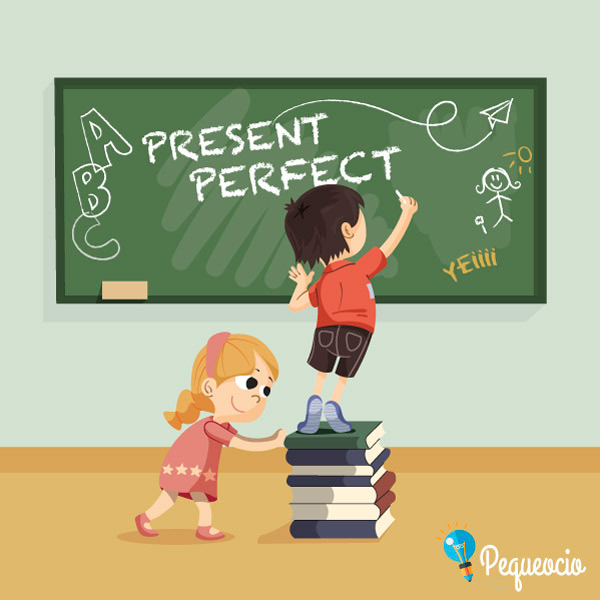Present perfect

The present perfect is used to indicate a link between the present and the past. The time of the action is before now but not specified, and we are often more interested in the result than in the action itself.
EXAMPLE
Question: Have / Has + Subject + Past Participle


The present perfect is used to indicate a link between the present and the past. The time of the action is before now but not specified, and we are often more interested in the result than in the action itself.
The Present Perfect Tense is formed using the following structure:
Affirmative: Subject + Have / Has + Past Participle
| Subject | Have |
Past
Participle
| Rest of the Sentence |
|---|---|---|---|
| I | have | studied | for the exam. |
| You | have | bought | a new computer. |
| He | has | eaten | my chocolate. |
| She | has | written | an e-mail. |
| It | has | been | cold this month. |
| We | have | won | the championship. |
| You | have | tried | to learn a lot. |
| They | have | forgotten |
my birthday.
|
- I have finished my degree - He terminado mi carrera.
- She has broken up with her boyfriend - Ella ha roto con su novio.
- They have phoned my mother - Ellos han llamado a mi madre.
Negative
Negative: Subject + Haven't / Hasn't + Past Participle
The contraction of the perfect tense in negative form is:
Have not = Haven't
Has not = Hasn't
Have not = Haven't
Has not = Hasn't
| Subject | Have | Past Participle | Rest of the Sentence |
|---|---|---|---|
| I | haven't | studied | for the exam. |
| You | haven't | bought | a new computer. |
| He | hasn't | eaten | my chocolate. |
| She | hasn't | written | an e-mail. |
| It | hasn't | been | cold this month. |
| We | haven't | won | the championship. |
| You | haven't | tried | to learn a lot. |
| They | haven't | forgotten |
my birthday.
|
- I haven't worked as a teacher - Yo no he trabajado como profesor.
- He hasn't been there during the presentation - Él no ha estado aquí durante la presentación.
- We haven't seen my grandmother for one month - No hemos visto a mi abuela durante un mes.
Question: Have / Has + Subject + Past Participle
Have
| Subject | Past Participle | Rest of the Sentence |
|---|---|---|---|
| Have | I | been | chosen for the team? |
| Have | you | bought | a new car? |
| Has | he | eaten | my sandwich? |
| Has | she | written | the letter? |
| Has | it | started | on time? |
| Have | we | won | a trophy? |
| Have | you | kept | my secret? |
| Have | they | driven |
there?
|
EXAMPLE
- Has she studied medicine? - ¿Ella ha estudiado medicina?
- Have you read this book? - ¿Has leído este libro?
- Have they come by car? - ¿Han venido en coche?

Comentarios
Publicar un comentario